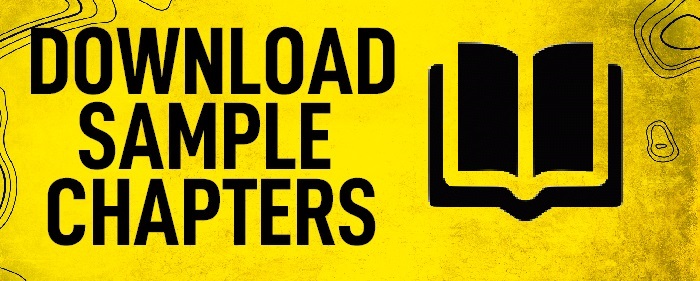My enthusiasm for a certain stripe of 80’s-90’s technothriller novel hasn’t dimmed since the day I got my hands on a paperback of Tom Clancy’s The Hunt for Red October. As a genre benchmark, its setting and themes are among the most prevalent in books of the same mil-spec class – born out of the dark potential of the Cold War, alongside tales of daring jet pilots or tanks clashing in the Fulda Gap, are the novels of next-generation sea-power.
For the most part – thanks to the long shadow cast by Clancy’s blockbuster – the technothriller ocean is largely the domain of the submarine. But there are a few surface war tales that cruise among the steel sharks, and a favourite of mine are the ‘USS Cunningham’ novels by the late James H. Cobb, centred around naval officer Amanda Lee Garrett, the commander of the titular US Navy warship, a cutting-edge, state-of-the-art stealth destroyer with its own attack helicopter unit.
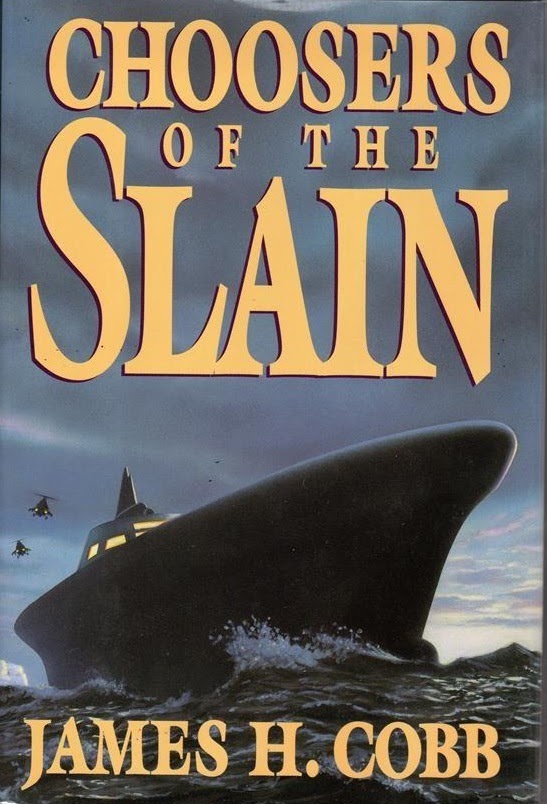
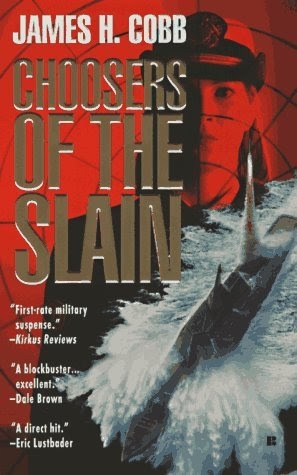
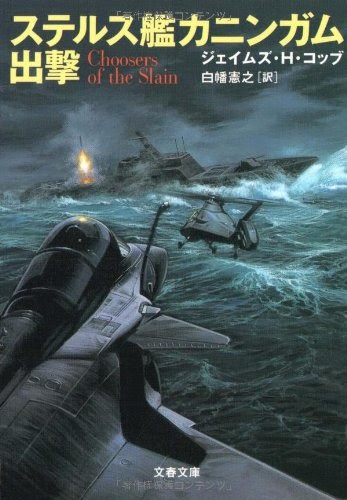
I was first introduced to the USS Cunningham books by a fellow technothriller aficionado, who suggested I read Choosers of the Slain, the opening salvo in Cobb’s series, first published in 1996. The novel essentially re-stages the Falklands War in Antarctica, when Argentine forces make a land grab for oil fields under the ice, and the newly-promoted Commander Amanda Garrett is placed in the firing line of this unexpected conflict. I sourced a second-hand copy of Choosers and bolted through it – and as soon as I was done, I immediately chased down copies of the other four novels in the series!
To find a female C/O in the boy’s club of technothriller protagonists was a rarity in the 1990s, much less one who anchored a whole series; Amanda Garrett is described thusly: “a headstrong, bold, and tenacious commander. Sleek and swift in leading her elite team in countering cyber, terrorist and political threats, she grows from an untested junior officer into a hardened commander as the series progresses…”
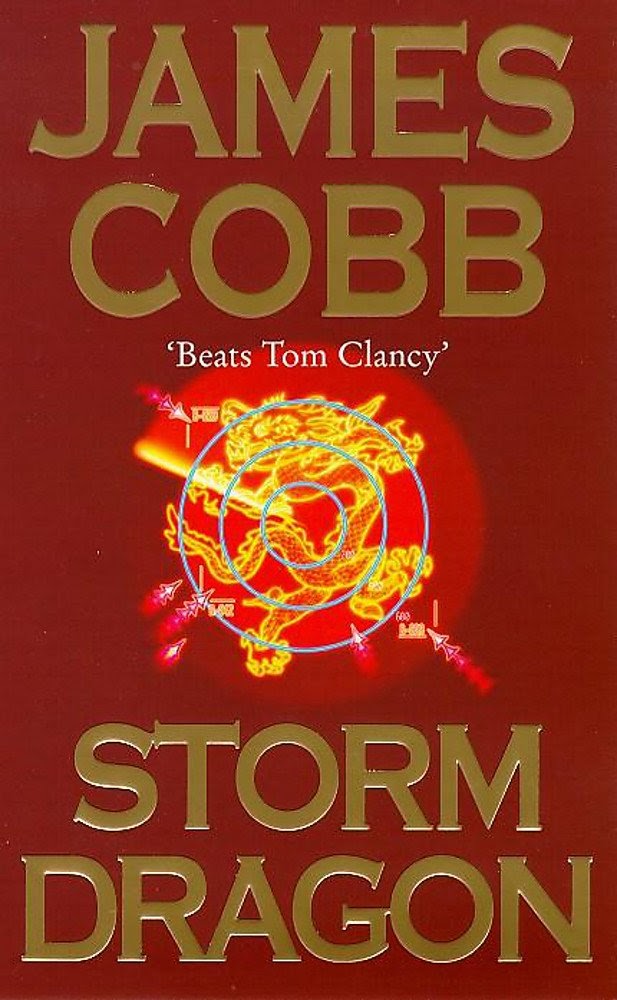
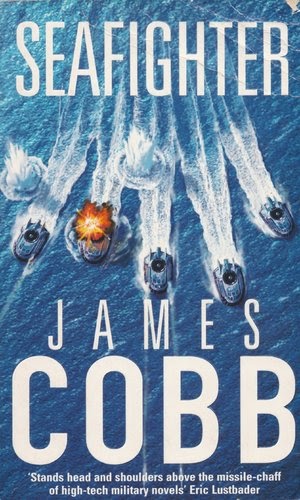
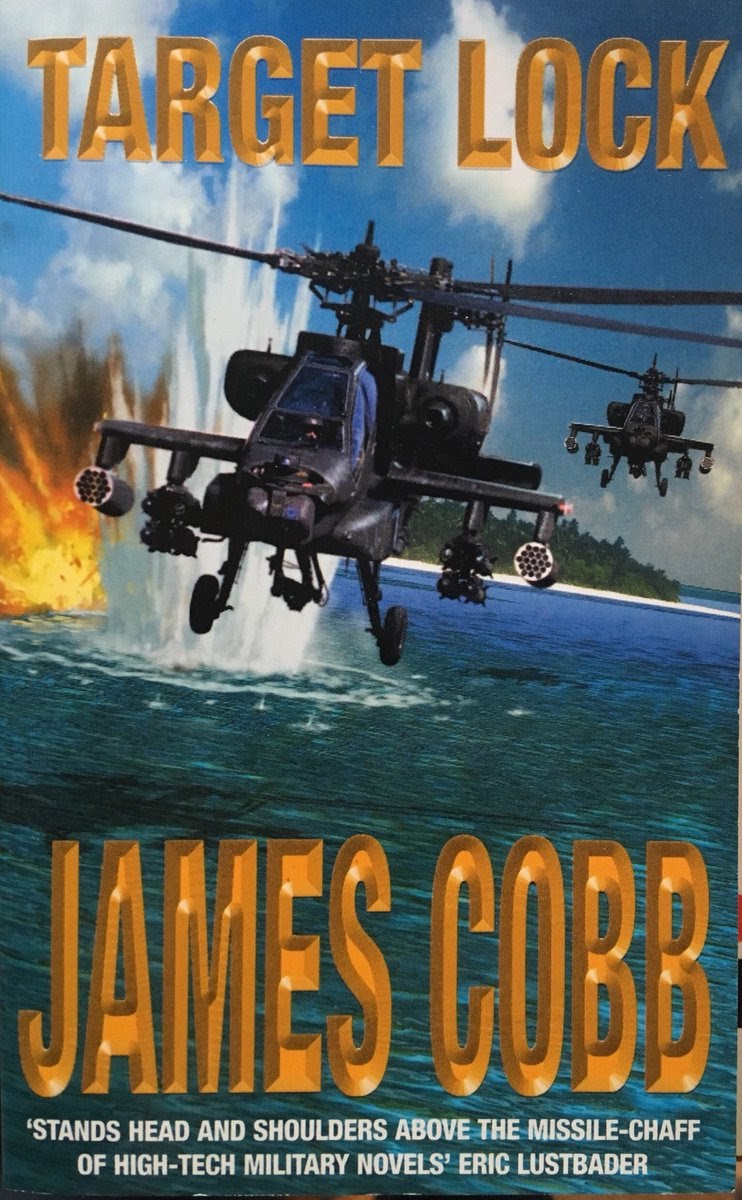
Storm Dragon, published a year later, has Garrett and the Cunningham crew in the middle of a full-blown three-sided war between Taiwan, rebel forces and the People’s Republic of China. This second book was re-named Sea Strike for its US release – according to the author, his American publisher felt the original title sounded too much like a fantasy novel; Sea Fighter followed in 1999, set in West Africa as a renegade general seizes power and threatens to plunge the entire region into open conflict; the fourth book Target Lock was released in 2001, taking place in Indonesia, with Garrett crossing paths with a modern pirate warlord.
Cobb writes classic high-stakes naval thrillers, with appealing characters and military action across all these novels, and while some of the geopolitics have since fallen out of step with the real world, the pace of the books remains engaging.
For almost two decades, the Cunningham series was out of print and seemed doomed to languish in the Davey Jones’ Locker of second-hand bookstores, as mainstream reader tastes fell away from these kind of stories. But as time passed, and as technothrillers old and new gained a renewed existence in digital formats, Cobb’s novels reappeared on the radar.
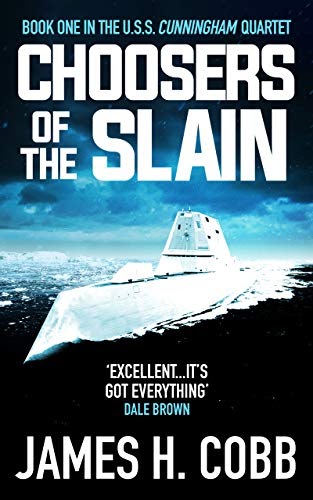
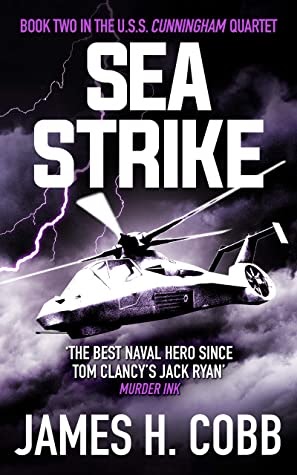
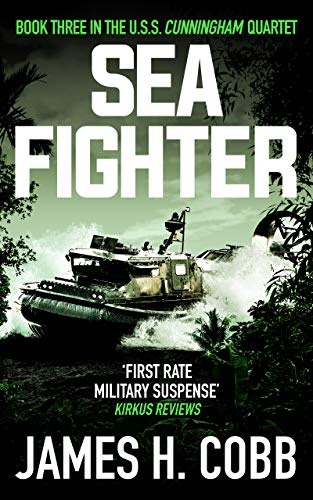

Silvertail Books, a British independent publisher, worked with the author’s estate to get the Cunningham series out of dry-dock and seaworthy once again – something I was very pleased to see! But there was one small thing…
Target Lock was the final voyage for the Cunningham… Or so it might have seemed. Silvertail billed its new eBook releases as “The USS Cunningham Quartet”, but what they didn’t know was that there was actually another novel – titled Phantom Force, which Cobb had written in the late 2000s but which had never been published in the English language.
I couldn’t let this go unremarked – mostly because I wanted to read this long-lost volume for myself! – so via back channels I reached out to Humfrey Hunter, Silvertail’s publisher, who was surprised to learn that the Quartet was actually a Quintet. Thus armed with details and the title, Silvertail were able to locate the missing Phantom Force manuscript among the papers of Cobb’s estate and eleven years after the publication of its predecessor, finally bring it to readers. The novel picks up where Target Lock left off, with Amanda Garrett leading the hunt for an elusive target across the islands of Indonesia.
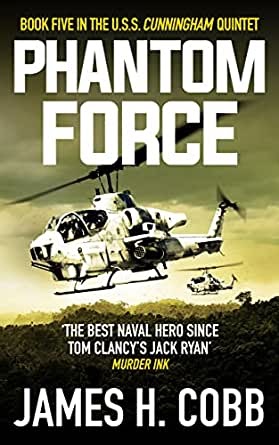
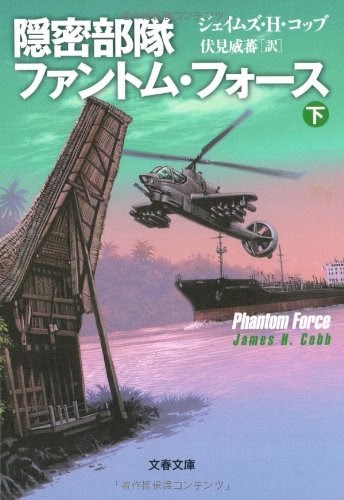
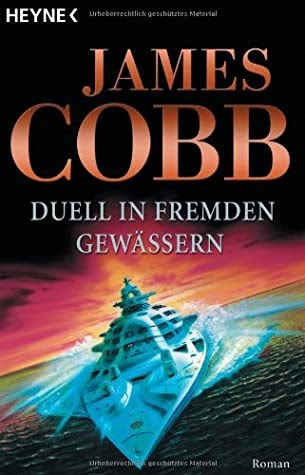
Cobb had written Phantom Force in the early 2000s, but while it had been published in Japan and Germany, his US-based publisher GP Putnam decided to pass on another book in the series, leaving English-speaking readers out in the cold. While Cobb kept on writing with his mystery fiction and The Arctic Event, a great novel in Robert Ludlum’s Covert-One series, he offered Phantom Force to Baen Books.
Known for their military science fiction output, Baen would give a home to a short story from the USS Cunningham saga – “The First Cup of Coffee War”, in the anthology Future Weapons of War – but ultimately they passed on publishing the Garrett novels themselves. As Cobb himself said in a 2007 internet post “No hard feelings, they just thought that it’s a little too far out of their chosen field.” But throughout 2007 and 2008, Cobb was still hoping to get the series back in play, even hinting at “an all new Amanda project in the near future involving another major technothriller author”. What that might have been would be interesting to know!
He was also set to write another Covert-One novel (to be titled either The Infinity Affair or The Vulcan Possession), but health issues began to impinge on his career. In June 2014, Cobb’s friend and colleague Jeff Knutson revealed that the author was suffering with non-Hodgkin lymphoma but still continuing to write as best he could; however, just a month later Cobb passed away at the age of 61, leaving a set of solid page-turning thrillers and mysteries, and a small but dedicated readership.
But good stories always find a home, and Silvertail have relaunched James H. Cobb’s USS Cunningham stories for a brand new audience of readers to enjoy – visit their website here, or check out the novels themselves at this link.

